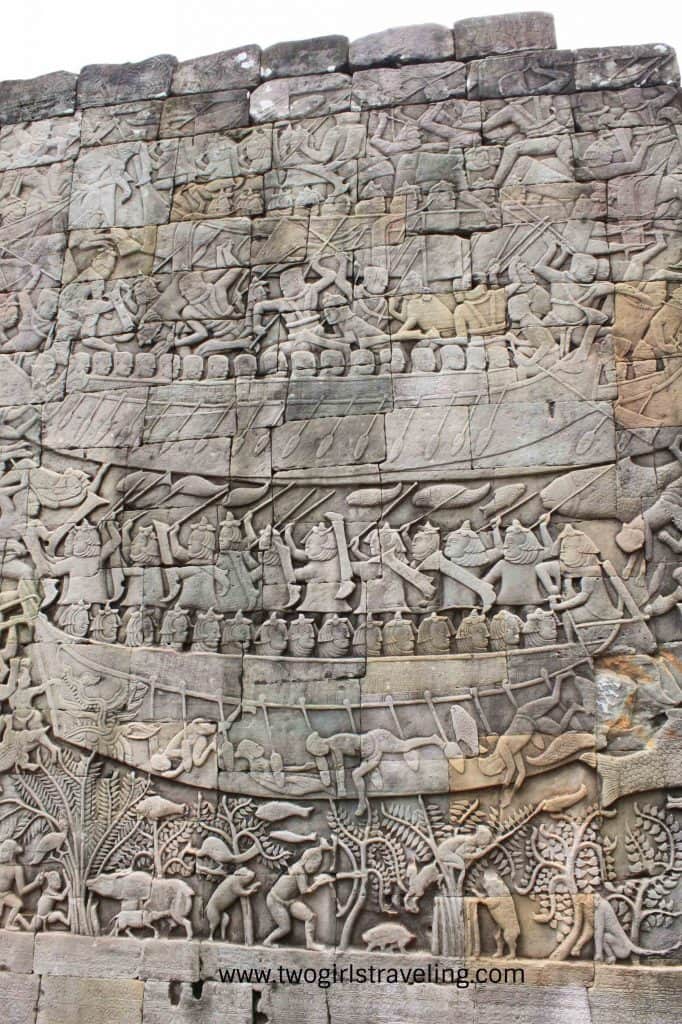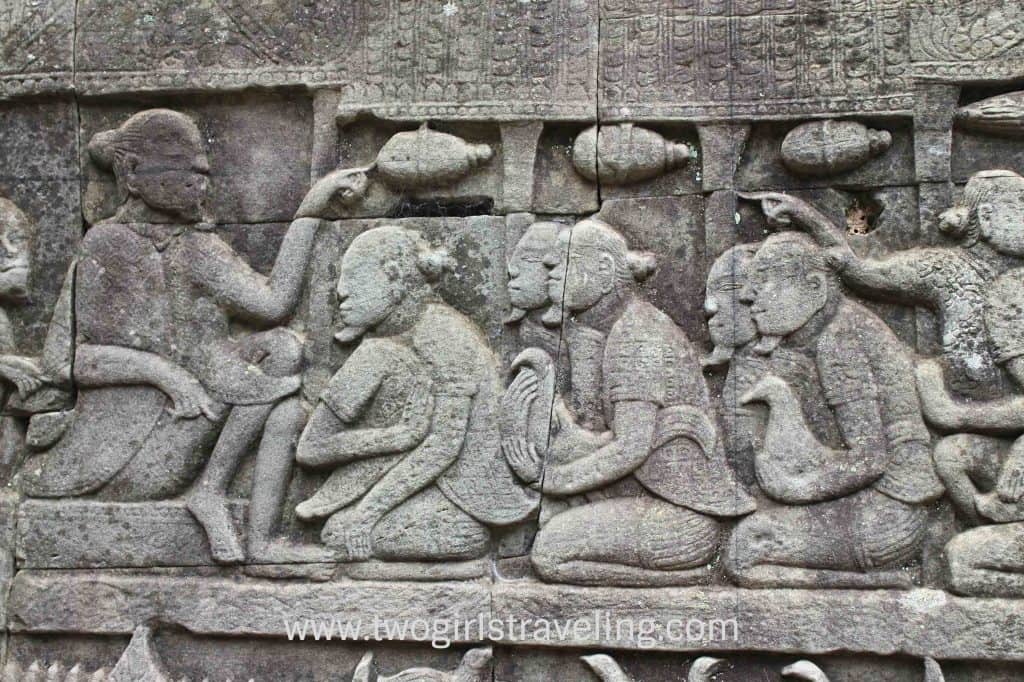មុខជាច្រើនរបស់បាយ័នបង្ហាញច្រើនជាងរឿងទេវកថានិងជ័យជំនះផ្នែកយោធា។ពួកគេបង្ហាញពីជីវិតប្រចាំថ្ងៃនៅអង្គរបុរាណ។
កាលពីសប្តាហ៍មុនខ្ញុំបានសិក្សាស្វែងយល់ពីខេត្តសៀមរាបជាមួយសិស្សរបស់ខ្ញុំ។ មាននិស្សិតសាកលវិទ្យាល័យរដ្ឋតិចសាស់ចំនួន ១៣ នាក់ដែលសិក្សានៅទីនេះរយៈពេលជាង ១ ខែ។ ប្រទេសកម្ពុជាត្រូវបានគេស្គាល់ថាជាប្រាសាទអង្គរវត្ត។ វាជាប្រាសាទដ៏អស្ចារ្យ - ជាប្រាសាទធំជាងគេបំផុតនៅលើពិភពលោក។ ប៉ុន្តែវាមានតែមួយក្នុងចំណោមមនុស្សរាប់រយនាក់ប៉ុណ្ណោះនៅក្នុងឧទ្យានបុរាណវិទ្យាអង្គរ។
ប្រាសាទមួយក្នុងចំណោមប្រាសាទដែលខ្ញុំចូលចិត្តជាងគេគឺបាយ័ន។ មនុស្សគ្រប់គ្នាកត់សម្គាល់ឃើញមុខធំ ៗ និងសន្តិភាពចំនួន ២១៦ នៅលើប៉មទាំង ៥៤ ។ មនុស្សជាច្រើនជឿថាទាំងនេះគឺជាមុខរបស់ស្តេចចារវរ្ម័នទី ៧ ដែលបានកសាងប្រាសាទបាយ័ន។ ពួកគេពិតជាតំណាងឱ្យ ព្រះពោធិសត្វអាវាឡិកស្វាវ៉ារ៉ា - ឡូកូសវីរ៉ា ។

Cambodians believe the number 9 is very lucky so numbers whose digits add up to 9 are particularly lucky.
54 towers – 5 + 4 = 9
216 faces – 2 + 1 + 6 = 9
In addition to these 216 faces, there are an additional 11000 carved figures. Lovely Apsara dancers adorn the pillars and walls.

Bas reliefs circle the ground floor of the temple. The upper levels of the relief show military scenes from a war with the Chams (Muslim enemies from the South). Below the military scenes are scenes from everyday life.

The Cambodian army couldn’t afford real armor so they are featured in loin cloths. You can also tell them by their elongated earlobes. Their enemy, the Chams, all wear uniforms and have helmets with flowers on the top. Chinese mercenaries fighting with the Cambodian army have very slanty eyes and beards.

Bayon’s many faces include scenes from every day life like this marriage proposal, dining scenes, gambling, and even animals chasing Cambodians up trees.

On our first trip, we were so enthralled with the towers and Apsara dancers that we missed the bas-reliefs on the lower levels. Now, I set aside half a day to explore Bayon’s many faces. Each time I visit, I find something new.






















0 Comments:
Post a Comment